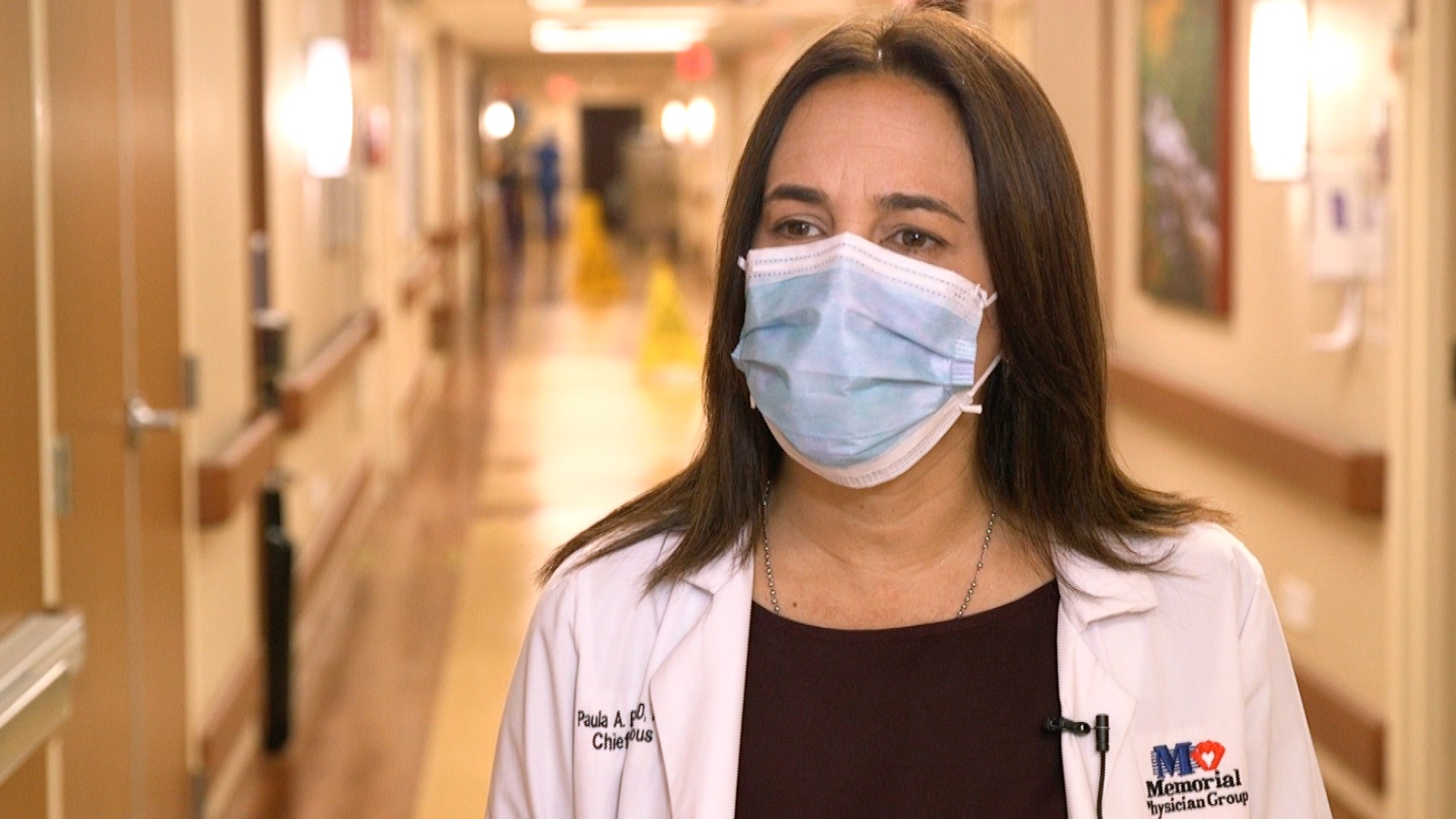Flu Season and COVID19
September 23, 2020

Updated 9/1/2021
As we prepare for flu season to coincide with the COVID-19 pandemic this year, Paula Eckardt, MD, chief of the Division of Infectious Disease at Memorial Healthcare System, shares her thoughts on how to prepare and what to expect.
When does the flu season officially start?
People can become infected with seasonal influenza (flu) all year, however, the peak months in the U.S. normally happen during the fall and winter months (October-March).
When should you get your flu shot?
We prepare early, usually during September, so we encourage everyone to get their flu shot by the end of October. Remember that it takes up to two weeks to build immunity after you receive the flu vaccine.
Stop the Spread of Flu

Is the flu preventable?
Generally speaking, the flu is preventable if you are vaccinated.
Can everyone get a flu shot?
Most adults and children over 6 months old, should get a flu shot; however, in rare cases someone may have an allergic reaction or complications after getting a flu shot.
You should not experience severe flu-like symptoms (fever and chills) after getting the flu shot. Mild symptoms may be a result of your immune system responding to the vaccine and creating antibodies.
It is not possible to get the flu from the flu shot because the flu shot contains inactive viruses meaning they aren’t “live.”
What can people do to prevent catching the flu?
The most important thing you can do is get a flu shot. In addition, you should:
- Avoid close contact with people who are sick
- Wash your hands frequently with soap and water
- Continue to practice physical distancing
- Exercise throughout the week
- Get good sleep
- Stay in control of existing diseases/conditions
Do you know if there could be a co-infection of the flu and COVID-19?
We have seen co-infections with other viruses, so there is a possibility of being infected with the coronavirus (COVID-19) and the flu at the same time.
How should I prepare for this year's flu season?
Efforts to reduce transmission of SARS-CoV-2 (COVID-19) have led to a decrease in routine preventive medical services, including immunization services. Ensuring that routine vaccination is maintained or reinitiated during the COVID-19 pandemic is essential for protecting individuals and communities from vaccine-preventable diseases and outbreaks.
Routine vaccination prevents illnesses that lead to unnecessary medical visits and hospitalizations that can further strain the healthcare system.
For the 2021–2022 influenza season, getting the flu vaccine is one of the most important things you and your family can do. Not only does the vaccine reduce the impact of respiratory illnesses attributed to influenza, it also limits the burden on our local healthcare system during the COVID-19 pandemic. Getting vaccinated is important because it helps stop the spread of the flu. If you're still hesitant about getting vaccinated, the CDC guidance for immunization during the pandemic may help reassure you.
Can I get the COVID-19 vaccine and the flu vaccine at the same time?
According to the CDC, COVID-19 vaccines and other vaccines may now be administered at the same time, on the same day, or within 14 days.
Although data is not available for COVID-19 vaccines administered simultaneously with other vaccines, extensive experience with non-COVID-19 vaccines has demonstrated that unexpected side effects are generally similar when vaccines are administered simultaneously as when they are administered alone.
Previously, COVID-19 vaccines were recommended to be administered alone, with a minimum interval of 14 days before or after administration of any other vaccines. This was out of an abundance of caution and not due to any known safety or side effects concerns. However, substantial data have now been collected regarding the safety of COVID-19 vaccines currently authorized by FDA for use under EUA.
It is unknown whether side effects of COVID-19 vaccine is increased with co-administration, including with other vaccines known to be more side effects, such as adjuvanted vaccines or live vaccines. When deciding whether to receive vaccines with the COVID-19 vaccine, vaccination providers should consider whether the patient is behind or at risk of becoming behind on recommended vaccines, their risk of vaccine-preventable disease (e.g., during an outbreak or occupational exposures), and the side effects profile of the vaccines.
If multiple vaccines are administered at a single visit, each injection will be administered to a different part of your arm. For adolescents and adults, the shoulder muscle can be used for more than one injection administered at different sites in the muscle.
What should I do if I think I have the flu or coronavirus?
The hospital is preparing to test patients for influenza and COVID-19 at the same time to differentiate which disease you have.
No symptoms: If you have no symptoms, you should stay home and contact your primary care physician to schedule a telehealth appointment.
Symptoms: If you are experiencing the following serious symptoms, please go to the nearest emergency department or call 911.
- Trouble breathing
- Persistent pain or pressure in the chest
- New confusion
- Inability to wake or stay awake
- Bluish lips or face
You will be subject to a screening exam and it will be determined if a test is medically necessary.

